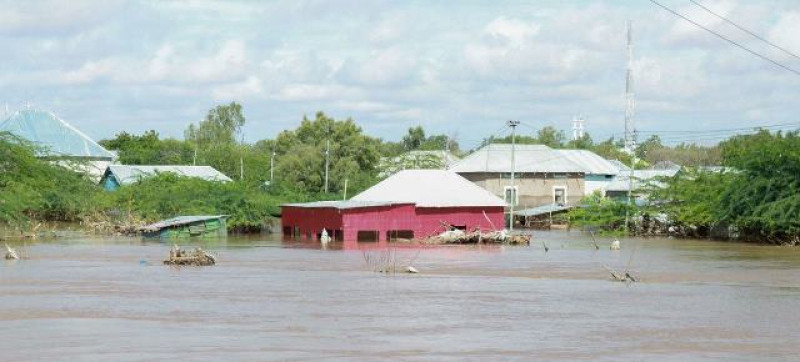- Bangladesh stocks end week higher on upbeat mood |
- BDR name will be restored, army won't be used for politics: Tarique |
- Hili land port highway upgrade delayed again, cost Tk 588cr up |
- Tarique vows quick execution of Teesta Master Plan if elected |
- How Undecided voters May Decide the Election |
Needs rise as flooding spreads in Somalia

File photo from May 2023 when Beledweyne town was flooded after the Shabelle River burst its banks. © UNICEF
30 November 2023 - Deadly torrential rains and floods have affected more than two million people in several areas of Somalia, with over 100 killed and 750,000 displaced from their homes, the authorities and humanitarian partners said on Thursday in the capital, Mogadishu.
The crisis began with the start of the deyr rainy season in October and comes six months after the country emerged from a historic drought that brought it to the brink of widespread famine.
“Recurrent climate shocks, widespread insecurity and rampant poverty have pushed the people of Somalia to the breaking point,” said George Conway, UN Deputy Special Representative and Resident and Humanitarian Coordinator.
‘Heartbreaking’ devastation
The ongoing heavy rains and floods are expected to swamp at least 1.5 million hectares of farmland through December.
Thousands of people have been cut off from markets and supplies, or marooned in isolated villages.
Roads, bridges and other infrastructure have been extensively damaged while vital facilities such as hospitals and schools have been closed, and the risk of cholera has increased.
Nimo Hassan, Director of the Somali NGO Consortium, described the devastation as heartbreaking.
“The floods have reinforced the urgent need for sustainable solutions and disaster preparedness,” he added.
Rescue and relief
So far, the Somali authorities and partners have reached roughly 820,000 affected people with assistance but needs are rapidly rising as the flooding expands around the country.
“The priority right now is to rescue stranded families and provide immediate humanitarian relief to the victims,” said Mahamud Moallim, Commissioner of Somalia’s Disaster Management Agency.
The situation is unfolding as millions of Somalis continue to battle hunger and malnutrition, with an estimated 1.5 million children under the age of five facing acute malnutrition between August and next July.
Humanitarians warn that they will not be able to meet current and emerging needs without additional resources.
A $2.6 billion plan to support 7.6 million people this year is only 42 per cent funded. – UN News

